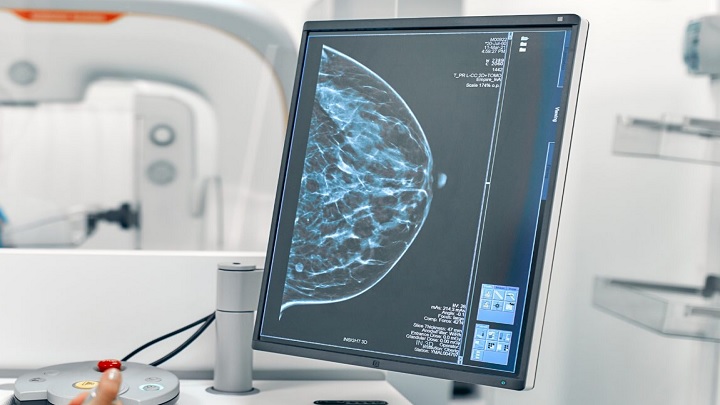Researchers find a mechanism that could be key to stopping the progression of breast tumours

A study published in the journal Nature Materials reveals a cell mechanism which could be key to slowing the progression of breast tumours. The results of this study, led by Pere Roca-Cusachs, lecturer at the Faculty of Medicine and Health Sciences of the University of Barcelona and principal researcher at the Institute for Bioengineering of Catalonia (IBEC), note that laminin — a protein that provides consistency and support to breast tissues — hinders the mechanotransudction process in cells, and therefore protects the cell nucleus from deformation.

A study published in the journal Nature Materials reveals a cell mechanism which could be key to slowing the progression of breast tumours. The results of this study, led by Pere Roca-Cusachs, lecturer at the Faculty of Medicine and Health Sciences of the University of Barcelona and principal researcher at the Institute for Bioengineering of Catalonia (IBEC), note that laminin — a protein that provides consistency and support to breast tissues — hinders the mechanotransudction process in cells, and therefore protects the cell nucleus from deformation.
Cells can transform mechanical changes into biological responses. This process is known as mechanotransduction and it plays a fundamental role in the evolution of solid tumours, such as breast cancer.
The tissues’ tightening is a common mechanical change in cancer processes. This stiffness is precisely what is detected during a breast self-examination or palpation. The stiffness of the breast tissue causes a chain reaction that generates tension inside the cells and it ends up deforming their nucleus. Ultimately, this deformation of the nucleus activates genes that control cell proliferation and are related to tumour growth.
